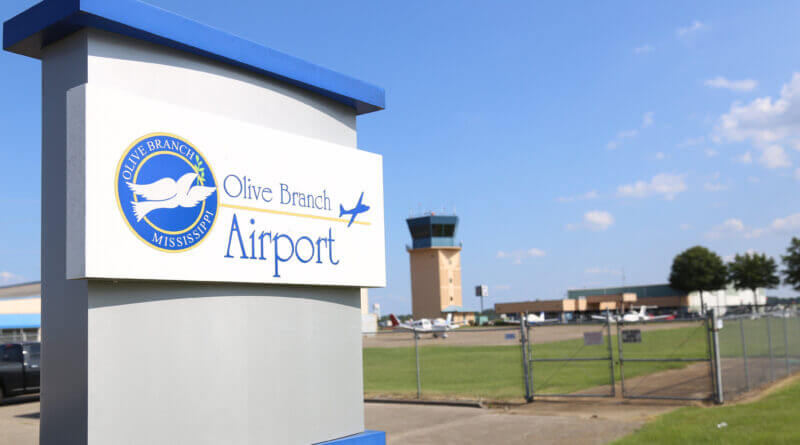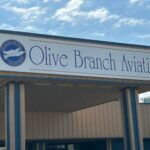May is Mississippi Aviation Month
Photo: Olive Branch Airport is one of 80 aviation facilities in the state of Mississippi and the only airport in DeSoto County. (Courtesy photo)
May is being recognized as Mississippi Aviation Month and the Olive Branch Airport is one of 80 aviation facilities in the Magnolia State being honored for what it does for the community.
Originally adopted in 2011 by the State Legislature through the passage of HC 124, Mississippi’s annual Aviation Month recognizes the impact of our state’s airports and aviation industry.
The Olive Branch Airport (OLV), now owned by the city, has been operating since 1972 and is one of the busiest airports in the State of Mississippi, making it an incredible asset to DeSoto County. It is the only airport in DeSoto County and directly supports all of North Mississippi and the Memphis Metro area.
City officials report that in 2022, the Olive Branch Airport had a total of 85,247 daily flight operations; surpassing the 2015 daily flight operations record by over 10,000 operations.
The Olive Branch Airport offers full-service fueling, aircraft parking, a passenger terminal, aircraft maintenance, a 6,000’ x 100‘ runway with ILS/GPS approach capabilities and a control tower for safer operations.
“Several billions of dollars are generated by Mississippi’s airports every year in direct and indirect economic benefits,” says Tom Heanue, Mississippi Airports Association President. “Our airports are vital contributors when it comes to recruiting industry, creating jobs and enhancing the state’s position in the global marketplace.”
Of the 80 airports in Mississippi, 74 are public and six are private. Seven offer commercial service. In the most recent economic impact study for the Mississippi Department of Transportation, an economic impact of more than $2.5 billion was revealed, and 20,025 jobs were traced to the state’s aviation sector. In addition to channeling business travel, tourism and commercial cargo, airports also benefit major state industrial sectors such as agriculture, aerospace manufacturing and oil and gas. They also enhance quality of life through support of emergency services like law enforcement and air ambulance and by supporting military operations and aviation-related education.






